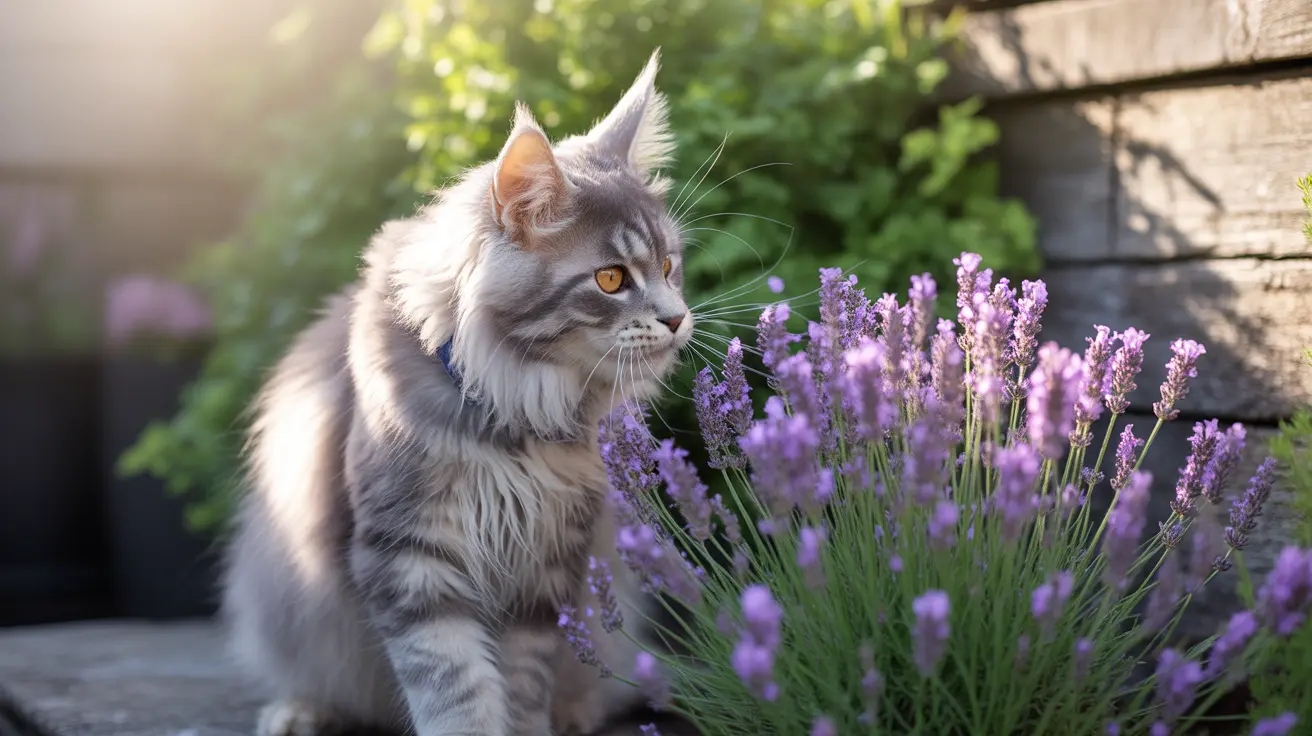If you're a cat owner who loves the soothing scent of lavender, you might be wondering: is lavender toxic to cats? The answer is yes - lavender can be toxic to cats in various forms, from the plant itself to its concentrated essential oils. Understanding these risks is crucial for maintaining your feline friend's health and safety.
Cats are particularly sensitive to lavender due to their unique physiology, specifically their inability to process certain plant compounds. This sensitivity makes them vulnerable to both acute and chronic toxic effects from lavender exposure. Let's explore why lavender poses risks to cats and what you need to know to protect your pet.
Understanding Lavender's Toxicity to Cats
Lavender contains compounds like linalool and linalyl acetate that are particularly problematic for cats. Unlike humans and many other animals, cats lack specific liver enzymes needed to break down these substances effectively. This deficiency makes them especially vulnerable to lavender toxicity, whether from the plant itself or its derivatives.
Different Forms of Lavender Exposure
Cats can be exposed to lavender toxins through multiple routes:
- Direct ingestion of lavender plants
- Skin contact with lavender essential oils
- Inhalation of diffused lavender oils
- Grooming after contact with lavender-containing products
The Dangers of Essential Oils
Lavender essential oil presents the highest risk to cats due to its concentrated nature. Even small amounts can cause significant health issues, as these oils are rapidly absorbed through the skin or respiratory system. Using lavender oil diffusers in your home can create an unsafe environment for your cat, as the airborne particles can settle on their fur and be ingested during grooming.
Recognizing Signs of Lavender Poisoning
Watch for these common symptoms of lavender toxicity in cats:
- Excessive drooling
- Vomiting and diarrhea
- Loss of appetite
- Lethargy or weakness
- Respiratory difficulties
- Unsteady walking (ataxia)
- Tremors or seizures in severe cases
Prevention and Safe Alternatives
To keep your cat safe, remove all lavender plants from your home and garden. Avoid using lavender-based products, including essential oils, diffusers, and scented household items. Instead, consider cat-safe alternatives for creating a pleasant home environment:
- Cat-specific pheromone diffusers
- Pet-safe air purifiers
- Non-toxic houseplants like spider plants
- Mechanical air fresheners without essential oils
What to Do If Your Cat Is Exposed
If you suspect your cat has been exposed to lavender, take immediate action:
- Remove the source of exposure
- Clean any oil from their fur with mild soap and water
- Contact your veterinarian immediately
- Monitor for symptoms
- Keep your cat warm and comfortable during transport to the vet
Frequently Asked Questions
Is lavender toxic to cats, and which parts of the plant are harmful?
Yes, lavender is toxic to cats. All parts of the lavender plant contain harmful compounds, but the essential oils are particularly dangerous due to their concentrated nature.
What symptoms should I watch for if my cat is exposed to lavender or lavender essential oil?
Watch for drooling, vomiting, diarrhea, loss of appetite, weakness, respiratory problems, and unusual behavior. Severe cases may present with tremors or seizures.
How dangerous is diffusing lavender essential oil in a home with cats?
Diffusing lavender essential oil is very dangerous for cats. The airborne particles can be inhaled and settle on their fur, leading to both respiratory issues and toxicity when grooming.
What steps should I take if I suspect my cat has ingested or been exposed to lavender?
Remove the source of exposure immediately, clean any oil from their fur with mild soap, and contact your veterinarian right away. Don't wait for symptoms to appear before seeking help.
Are there safe plant or aromatherapy alternatives to lavender for cat owners?
Yes, consider using cat-specific pheromone diffusers, spider plants, or mechanical air fresheners. Always verify that any plants or products are cat-safe before introducing them to your home.
Remember, when it comes to your cat's health, it's better to err on the side of caution. While lavender may have benefits for humans, it's best to keep this plant and its derivatives out of homes with feline family members.






